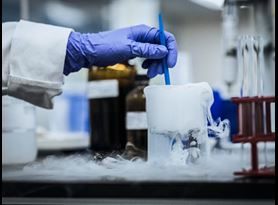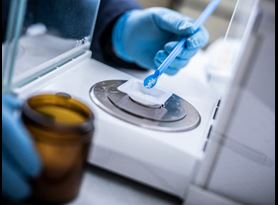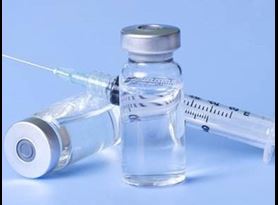What You Need to Know About the COSMOS-Standard for Natural & Organic Cosmetic Products
In January 2010, a single, international standard for natural and organic cosmetic products became effective.
The standardized, harmonized COSMOS-Standard (“COSMetic Organic and Natural Standard”) was developed by the five foremost organizations involved in organic and natural cosmetics standards. The goal of the standard is to ensure:
- A level playing field;
- Efficient operation for companies;
- Clarity and confidence for consumers, and
- Effective progress toward sustainable development.
According to the COSMOS-Standard guidance, the ultimate objective is to “address the major issues essential to the environment and welfare of man on the planet. For practical purposes, it aims to ensure the transition between today’s and tomorrow’s possibilities of technological advances to promote the development of cosmetics ever more natural and organic.”
General requirements of the COSMOS-Standard
The COSMOS-Standard provides some general requirements and guidelines, which encompass forbidden materials and ingredients and no animal testing, both of which are outlined below.
Nanomaterials and GMO ingredients are forbidden
Nanomaterials are forbidden; however, applications for exceptions supported by technical dossiers will be considered. Additionally, genetically modified organisms (GMOs) cannot be utilized in products which seek to obtain COSMOS certification. As such, the contamination of primary raw materials must not be above 0.9% and can only be above the reliable detection limit of 0.1% if unintended or technically unavoidable.
No animal testing
The standard clearly states that cosmetic products must not be tested on animals by the manufacturer, or any third party induced by the manufacturer to do so. The only exception to this requirement is when it is required by law, other than cosmetic law.
Commonly used terms within the COSMOS-Standard
The terms “physically processed agro-ingredients (PAI)” and “chemically processed agro-ingredients (CPAI)” are used throughout the standard. These terms are defined below, as well as in Figure 1.
Physically processed agro-ingredients (PPAI)
Primary raw materials of plant, animal or microbial origin that have been extracted using the physical processes listed in Appendix I and meet the following criteria:
- Must respect the requirements of the Convention of International Trade in Endangered Species of Wild Fauna and Flora (CITES).
Forbidden under this classification:
- Genetically modified plants, plant materials and microorganisms, and
- Primary raw materials extracted from living or slaughtered animals.
Ingredients of animal origin are allowed if they:
- Are produced by animals but not part of the animal;
- Do not entail the death of the animal, and
- Were obtained using only the processes in Appendix I.
Chemically processed agro-ingredients (CPAI)
Any chemically processed product of plant, animal, or microbial origin that must meet the same initial requirements as PPAI:
- Respect the requirements of CITES;
- Genetically modified plants, plant materials and microorganisms are forbidden, and
- Primary raw materials extracted from living or slaughtered animals are forbidden.
Likewise, ingredients of animal origin are allowed if they:
- Are produced by animals but not part of the animal, and does not entail its death, and
- Were obtained using only the processes in Appendices I and II.
Additionally:
- Chemically processed agro-ingredients may contain mineral moieties, and
- Alcohol and other by-products of fermentation are considered chemically processed agro-ingredients.

Figure 1. Requirements detailed within the COSMOS-Standard for physically processed agro-ingredients (PPAI) and chemically processed agro-ingredients (CPAI)
COSMOS-Standard certification and approval: COSMOS Signature
Two routes for use of the COSMOS Signature on raw materials, both with and without organic content, as well as base formulas, are detailed within the guidance.
COSMOS Certified cosmetic ingredients
For cosmetic ingredients to be COSMOS certified, the following criteria must be met:
- Organic ingredient(s) must be present;
- Maximum allowance of 2% of petrochemical moieties, and
- The % organic content must appear on the product label.
COSMOS Approved cosmetic ingredients
Cosmetic ingredients may be labeled as COSMOS approved if they:
- Contain no organic content, and/or
- The material does not allow for any claim to organic certification.
The standard also outlines a pathway for the COSMOS Signature of finished cosmetic products, and akin to the signature for raw materials, there are specific requirements for both organic and natural finished cosmetic products.
COSMOS Organic finished cosmetics
COSMOS Organic designation is available for products that meet COSMOS-Standard guidance in all aspects. They must contain the required percentage of organic ingredients, as well as comply with the following additional measures:
- Minimum 20% of the total product is organic;
- At least 95% of the physically processed agro-ingredients (PPAI) are organic;
- Remaining PPAI is organic if listed in Appendix VI;
- Chemically processed agro-ingredients (CPAI) are organic if listed in Appendix VII, and
- The product contains a maximum of 2% of petrochemical moieties.
The guidance has been adapted for specific product classes. The total organic content in the finished product has been reduced from at least 20% to at least 10% for:
- Rinse-off products;
- Non-emulsified aqueous products, and
- Products with at least 80% minerals or ingredients of mineral origin.
Likewise, for alcohol spritzers and perfumes, organic criteria have been adapted to the following:
- At least 95% of [PPAI + alcohol] must be organic, and
- [Organic PPAI + organic alcohol] / [all PPAI + alcohol] > 95%.
Furthermore, specifically for soaps, organic criteria have been adapted within the guidance to address formulations that use raw materials to create finished product, as well as when soap noodles are used and other ingredients are added.
For soaps that are created from raw materials into finished product (plant oils):
- No change, and
- Organic PPAI / all PPAI > 95%.
When soap noodles are used and other ingredients added to soap formulations:
- At least 95% of [PPAI + CPAI soaps] must be organic, and
- [Organic PPAI + organic CPAI soap] / (all PPAI + CPAI soap) > 95%.
The guidance also includes equations specific to soap formulations that must be utilized when determining the percentages of organic CPAI and CPAI materials present in the finished product.
COSMOS-Standard certification and approval: COSMOS Organic and Natural
The COSMOS-Standard covers two routes of certification, Organic and Natural, based upon the composition of finished products.
COSMOS Organic certification for cosmetic products
Element has access to an ever-expanding list of raw material vendors who have COMOS certified products that can be used in the creation custom formulations. Per the COSMOS-Standard, cosmetic products can be certified organic if they meet the following requirements:
- At least 95% of the physically processed agro-ingredients (any plant, animal or microbial product derived from agriculture, aquaculture, or wild collection/harvest) must be organic;
- The remaining physically processed agro-ingredients must be organic if they are listed in Appendix VI in the standard, and
- Chemically processed agro-ingredients must be organic if they can be found in Appendix VII in guidance.
This criterion has been adapted within the COSMOS-Standard specifically for soaps, alcohol spritzers, and perfumes, due to the composition of typical formulas for these product classes.
Characteristically, a high percentage of chemically processed agro-ingredients are present within such formulations, and without the adaptation of the standard, meeting the >95% organic physically processed agro-ingredient requirement is not feasible.
COSMOS Natural certification for cosmetic products
The COSMOS-Standard provides a formula to calculate the percentage of a formula derived from natural origins, and while a “natural” finished product may contain some organic ingredients, there is not a high enough percentage of organic materials to meet the organic certification standard. However, if some organic ingredients are present, the COSMOS-Standard does provide guidance and requirements to identify organic ingredients on product labels. Base formulas that do not contain organic content (shampoo and soap bases) cannot go through the standard approval process, and instead must pursue COSMOS Natural certification, which includes an on-site inspection.
Sourcing, manufacturing, marketing, and control of cosmetic products in compliance with the COSMOS-Standard
In 12 chapters, the COSMOS-Standard details both the processing and origin of ingredients and how they may, and may not, be treated. These ingredients include:
- Water;
- Minerals and ingredients of mineral origin;
- Physically processed agro-ingredients;
- Chemically processed agro-ingredients, and
- Other ingredients, which includes some preservatives.
For companies and manufacturers to use the COSMOS-Standard, they must apply for certification through an authorized certification body, which must be (associate) members of the COSMOS-standard AISBL. The certification body will then thoroughly audit operations to ensure the requirements of the standard are being upheld. These audits consider the entire process from checking ingredients to validating final products.
Meeting requirements within the COSMOS-Standard
Element has a proven track record of success developing formulations which meet the strict criteria set forth within the COSMOS-Standard. There are two pathways that can be pursued to achieve a formulation that can be COSMOS certified, which include the modification of an existing formula or the development of a new, novel formulation.
When modifying an existing formula, scientists will first need to evaluate the details of the current formula to identify non-compliant materials. Those non-compliant raw materials with then need to be replaced with COSMOS-standard approved ingredients, all while maintaining performance criteria, and ensuring the total formula composition complies with COSMOS calculations. If the preferred course of action is to create a new, novel formulation, performance specifications must first be defined. COSMOS-approved ingredients can then be sourced, and existing, marketed products can be used for benchmarking as multiple iterations of the formula are created, modified, and optimized for performance characteristics and compliance to the standard.
Find related Resources
Learn more

Product Development
Element's leading product development labs have a track record of success innovating, optimizing and formulating products for various industries and applications.

Product Formulation
Learn more about how to approach product development from Element's industry-leading teams of knowledgeable, consultative formulation scientists.

Extractables and Leachables Studies
Element's extractables and leachables studies offer tailored solutions that ensure patient safety and compliance with industry standards.
Sign Up for Free Resources
Visit Element's email subscription center to receive the latest industry news, technical whitepapers, case studies, webinars, and upcoming events.
